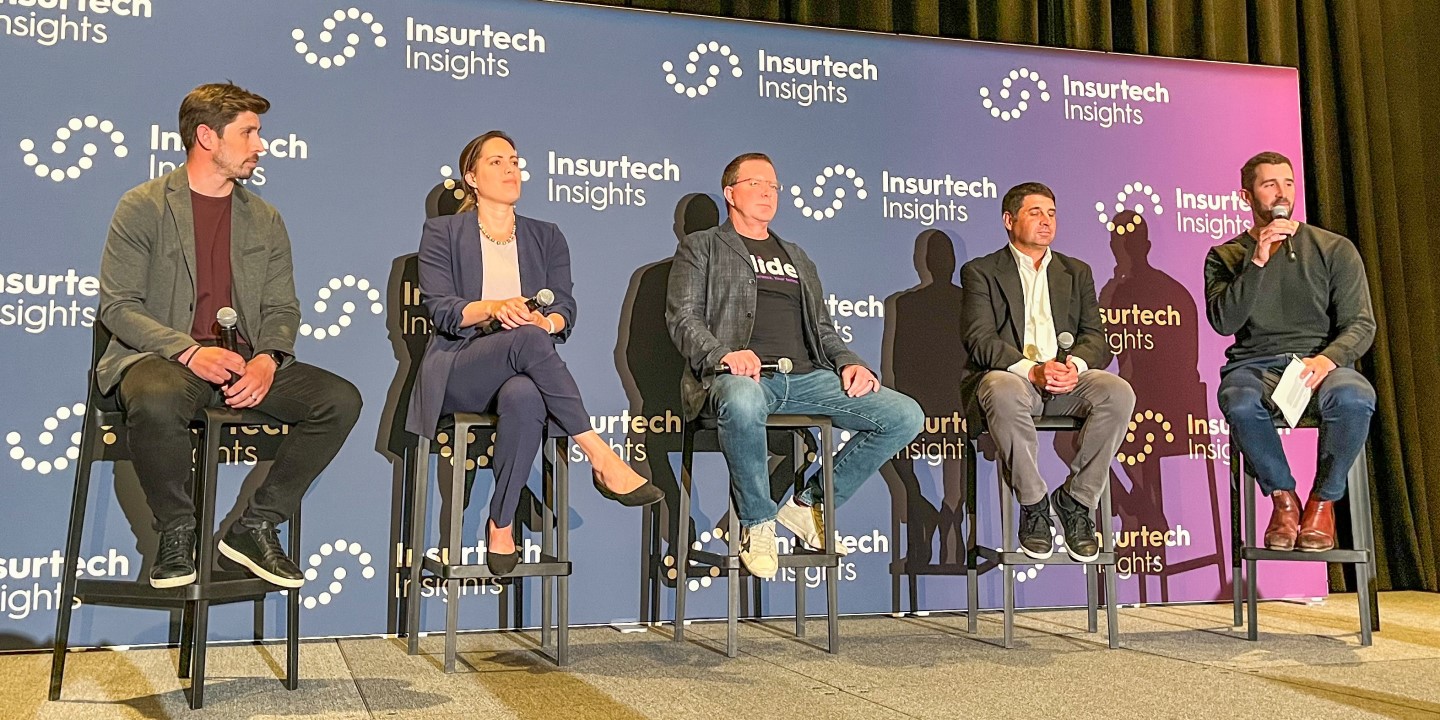Zurich North America CEO offers optimistic view of AI in insurance
Technology and AIArticleJuly 14, 2023
By Kristof Terryn, CEO, Zurich North America
There is no shortage of pontificating about the future of artificial intelligence these days. Everyone, it seems, has a take on the subject. If you ask the right question, you can even find out what one of the growing number of online generative AI tools thinks about the topic.
But AI isn’t new or some sci-fi dream, although it may seem so based on the amount of attention it’s getting. That’s largely because several tech providers earlier this year unveiled their latest online tools that promise to produce articles, poetry, critical analyses, music, art, photography and other digital miracles in just a matter of seconds with a simple prompt.
AI has, in fact, been around for decades and has continued to evolve. It has become increasingly complex, powerful, useful and, to many, worrisome.
Data and machine learning are fueling the use cases of AI for insurance companies
The insurance industry, in particular, has expressed a keen interest in the potential impact of AI — from the risks it presents to the opportunities it promises. And for good reason. Data — the fuel that powers AI — plays a key role in the insurance industry. Insurers collect, generate and interpret a huge amount of data, all in an effort to gain insights that will help identify and manage customers’ risks and drive business decisions.
 According to Raconteur, the world produces five exabytes of data each day. By 2025, this is expected to rise to 463 exabytes per day. (1 exabyte = 1 billion gigabytes.)
According to Raconteur, the world produces five exabytes of data each day. By 2025, this is expected to rise to 463 exabytes per day. (1 exabyte = 1 billion gigabytes.)
Insurance companies mine data to gain insights. In 2021, insurance companies invested $3.6 billion in big data analytics, resulting in increased efficiency, cost savings and improved fraud detection. But much of the data collected is unstructured (not arranged in a way that is easy to analyze).
That’s where large language models can help insurers. Large language models are a type of AI system that works with language. They are the algorithm behind online chatbots and considered part of a broader term, generative AI, that is used to describe any AI system whose primary function is to generate content. Several tech companies in the past year have released online generative AI tools that can understand natural language and generate text.
Many businesses are already using AI for intelligent document processing — classifying and extracting data from business documents using multiple AI and machine-learning technologies to enable end-to-end process automation. But advances in AI promise much more.
For insurers, large natural language models are not likely to replace the work of humans, but they can help augment human capabilities, especially in insurance claims and underwriting. Large language models can play a key role in the extraction of information from documents and code migration.
How artificial intelligence is transforming the insurance industry
Machine learning and AI technology for claims processing
Think about how a claims case manager must go through hundreds of pages of supporting evidence to extract insights. At Zurich, we’ve used AI and machine learning in our medical bill review process. The medical bill review process supports claims personnel during the review of medical bills for workers’ compensation, automotive and general liability claims. By embedding a trained model that can comb through hundreds of medical bills, we can identify patterns that show where a nurse case manager would be helpful to intervene with claimants early in the management of their medical care.
AI use for underwriting risk assessment
AI is also being utilized in underwriting. A good example comes from Zurich-owned Cover-More, which offers a travel app, Freely, that allows travelers to adjust their travel insurance coverage based on their activities. The service leverages AI combined with a smartphone’s motion capture and geolocation capabilities to detect in real time specific high-risk activities that a customer is engaged in. The app can then send tailored insurance recommendations to cover the activity.
You can see that insurers can use AI for more than just data extraction. At Zurich, we apply AI to help make business decisions and improve the quality of risk decision making. AI can also improve speed and even transition into automation.
Collaborating with insurtechs
The potential for using AI in claims and underwriting is enormous. But even with the remarkable talent we have at Zurich, we can’t do everything on our own. That’s why Zurich collaborates with other firms, including tech startups, to support our technology needs. This is best represented by the Zurich Innovation Championship, which began in 2018 as a global insurtech competition. Zurich North America is working with three of the 13 global winners for this year’s Zurich Innovation Championship as well as two winners from the 2022 competition.
The potential for AI is vast and varied, as evidenced by the very distinct applications of AI that these five Zurich Innovation Championship winners employ in their solutions, from mental-health therapeutic support to identification of potential disasters, selection of the best claims approach and development of carbon-reduction roadmaps.
By working with startups applying AI in unique and meaningful ways, we can more effectively manage our customer experience in an increasingly uncertain and rapidly changing world.
Protecting data
Of course, the use of AI and the handling of massive amounts of data required to fuel the processes comes with an equally massive ethical responsibility. Our customers share data with us because they view our relationships as a strategic partnership. They hope that it will lead to better risk management and better results for both parties.
Zurich is mindful of its responsibility, which includes ensuring fairness and privacy with transparency and clear accountability. We do this through our public data commitment that states how we aim to be a leader in responsible handling of data and support ethical use of technology.
This commitment includes the promise never to sell customers’ personal data or share their personal data without being fully transparent. This means customers will always be informed if their personal data is shared, and with whom.
With Zurich’s 150-year history and extensive knowledge of managing emerging and evolving risks, we take precautions to ensure the adoption of AI is well managed and includes safeguards.
Now is time for the insurance industry to reimagine how to solve problems for our customers with the transformative potential of AI.
When done right, AI won’t take the important human element out of insurance. It is our people and the relationships they have fostered with customers, distributors and third-party collaborators that have made Zurich an insurance leader. AI can help extract value from our team members’ day-to-day operations. Ultimately, AI will make the insurance industry better.


